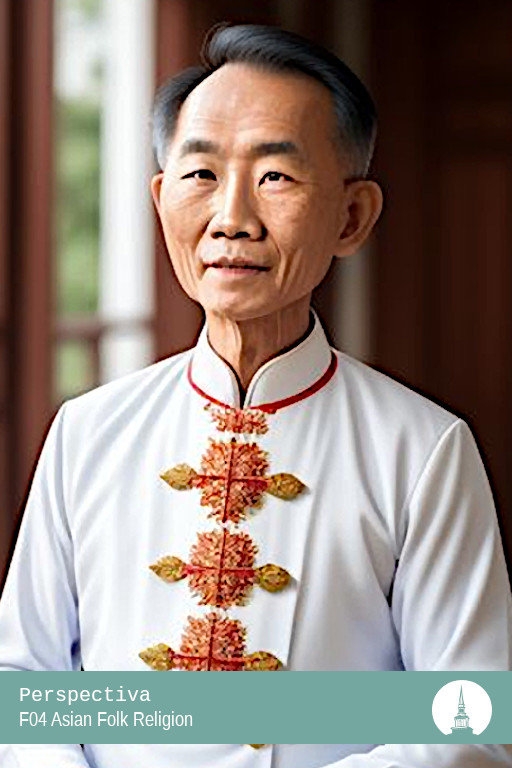Four Examples of the Asian-American Folk Religion Lifeway:
F04 Asian Folk Religion
Asian folk religion encompasses diverse regional belief systems that emphasize the veneration of local deities, ancestor worship, and a profound connection to the natural world.
Asian folk religion is a diverse and expansive category that encompasses a wide array of regional belief systems across the Asian continent. A significant example of this is Chinese traditional religion, a complex and multifaceted belief system deeply ingrained in Chinese culture. Chinese traditional religion embodies Asian folk religion by emphasizing the veneration of local deities, ancestor worship, and a profound connection to the natural world. This intricate belief system reflects the spiritual essence of Asian folk religion, where the bond between humans, the divine, and the environment is central.

Shenism Veneration of Celestial Beings
Cihui Tang is a prominent temple and religious institution that operates within the realm of Shenism, a specific branch of Chinese religion. Shenism is characterized by its focus on the worship of a diverse pantheon of deities and spirits. This veneration of celestial beings resonates with the broader principles of Asian folk religion, where spiritual entities play a crucial role in the lives of adherents. Shenism's practices and rituals, often centered around the harmonious interaction between humans and these spiritual beings, are emblematic of the syncretic nature of Asian folk religious lifestyles.
Taoism, Buddhism, Confucianism Synthesis
Within the diverse landscape of Asian folk religion, various syncretic belief systems have emerged, blending elements of established religions with folk traditions. Xuanyuan Jiao and Yiguan Dao are prime examples of this synthesis, as they incorporate aspects of Taoism, Buddhism, and Confucianism into their belief systems. These syncretic practices demonstrate the adaptability and inclusiveness of Asian folk religion, where traditional belief systems continually evolve and absorb new influences.
Vietnamese Ancestral Worship
In Vietnam, the ancestral worshipping tradition, such as that of the Caodaists, forms a significant component of Asian folk religion. It underscores the profound respect and reverence for ancestors, local spirits, and deities, further exemplifying the spiritual diversity within this category. Vietnamese ancestral worshipping traditions emphasize the interconnectedness of generations, fostering a sense of continuity and unity among communities and families.
Flexibility and Inclusivity of Asian Folk Religion
In conclusion, Asian folk religion is a multifaceted tapestry of belief systems, and its intricate connections with Chinese traditional religion, Shenism, syncretic belief systems like Xuanyuan Jiao and Yiguan Dao, and the ancestral worshipping tradition in Vietnam exemplify the rich and diverse spiritual landscape of immigrants from the broader Asian continent. These practices collectively illustrate the flexibility and inclusivity of Asian folk religion, allowing it to adapt and thrive amidst changing cultural and historical contexts.
.

| TOP TEN BASIC TRADE AREAS | |
| 1 | |
| 2 | |
| 3 | |
| 4 | |
| 5 | |
| 6 | |
| 7 | |
| 8 | |
| 9 | |
| 10 |
